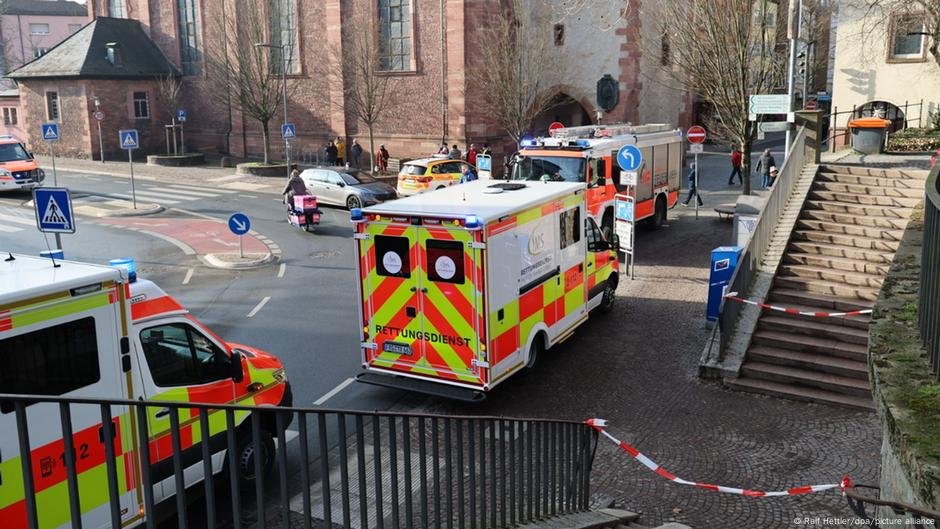- Joined
- Mar 11, 2013
- Messages
- 16,131
- Points
- 113

File photo: The Taliban's 2021 re-takeover of Kabul after the departure of foreign troops | Photo: Siddiqullah Alizai/AP/picture alliance
Germany is calling for direct talks with the Taliban to deport Afghan criminals, as it tightens migration policies and phases out humanitarian programs. Thousands of at-risk Afghans now face uncertainty, stranded in Pakistan while awaiting suspended resettlement to Germany.
German Interior Minister Alexander Dobrindt has called for direct negotiations with the Taliban to facilitate the deportation of Afghan nationals convicted of crimes in Germany. In comments published by Focus magazine, the Christian Social Union (CSU) politician said Berlin could no longer rely indefinitely on third-party mediators to manage deportations to Afghanistan.
"My idea is that we make agreements directly with Afghanistan to enable repatriations," Dobrindt said in the interview published on Wednesday (July 2).
"We still need third parties to conduct talks with Afghanistan. This cannot remain a permanent solution," added Dobrindt.
He described current arrangements, such as the August 2024 deportation of 28 Afghans to Kabul with the support of Qatar, as temporary workarounds. Since the Taliban regained power in 2021, Germany has not maintained official diplomatic ties with the regime.
Dobrindt also confirmed that discussions were underway with Syria’s interim Islamist government, which took control after the fall of Bashar al-Assad in December, 2024, regarding the return of Syrian nationals convicted of crimes.
"There are contacts with Syria regarding an agreement to deport Syrian criminals. However, the results are not yet available," Dobrindt said.

Germany phases out humanitarian admission programs
Germany's new government, a center-right coalition led by Chancellor Friedrich Merz, is pursuing a tougher stance on migration. Humanitarian admission programs are under review or being phased out, including a scheme that had offered refuge to at-risk Afghans.Originally launched in October 2022, the program aimed to admit up to 1,000 people per month who were considered at risk, e.g. human rights activists, but fewer than 1,600 were resettled before the program was suspended earlier this year because of holdups and cancellation of flights.
That suspension has left thousands in limbo, including 25-year-old Kimia, an Afghan visual artist and women’s rights advocate who fled to Pakistan in 2024 after being accepted onto the program. Her embassy interview was abruptly canceled in April, according to the news agency Reuters.
"We just want to find a place that is calm and safe," she told Reuters. Like others awaiting entry, her living expenses in Islamabad are currently covered by the German government.
Germany refugee cap 'no longer workable'
According to the German Foreign Ministry, roughly 2,400 Afghans are still waiting to travel under the suspended program. NGOs estimate that up to 17,000 more remain in earlier stages of application. The government says it is conducting a review and that those already admitted to the scheme will continue to receive support, but no timeline has been given for when, or if, admissions will resume.Interior Minister Dobrindt also questioned Germany’s current migration capacity, stating the previous proposed refugee cap of 200,000 annually "is no longer workable, it would also be far too high from today's perspective." He added that this includes the 1.2 million Ukrainians and over 600,000 asylum seekers who arrived over the past two years.
Approval rates for Afghan asylum seekers have also declined sharply, from 74 percent in 2024 to 52 percent in early 2025, according to the Federal Office for Migration and Refugees (BAMF). Afghan applicants and advocates say they fear growing bias in asylum policy, especially after several high-profile attacks were carried out in Germany by Afghan migrants, including a car-ramming attack in Munich and a knife attack earlier in the year which resulted in fatalities.

Just last week, it was reported that German police shot an Afghan asylum seeker dead in the southern town of Wangen after the man reportedly tried to attack police officers with a knife while they were trying to arrest him.
Thorsten Frei, chief of staff to Merz, said humanitarian migration has now reached levels that "exceed the integration capacity of society."
"As long as we have irregular and illegal migration to Germany, we simply cannot implement voluntary admission programs," he said.
Meanwhile, women like Kimia and others waiting in Pakistan say returning to Taliban-controlled Afghanistan is not an option.
"If I go back, I can't follow my dreams — I can't work, I can't study. It's like you just breathe, but you don't live," she told Reuters.
